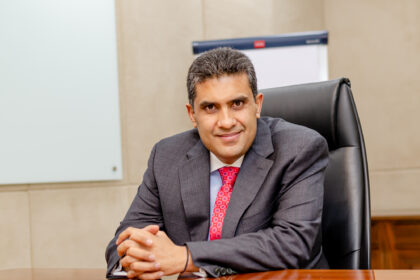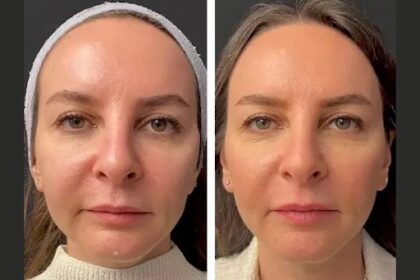Waiting to Be Seen: The Crisis of Confidence in Kenya’s Public Hospitals
Across Kenya, a troubling truth shadows the corridors of public hospitals: patients are losing faith in the very systems meant to heal them. In facilities meant to be sanctuaries of care, countless Kenyans are instead met with long waits, overcrowded wards, and a sense of being forgotten. In the process, a deeper crisis has taken root—not just in healthcare delivery, but in public trust.
Behind the headlines and health budgets lies a more personal story: that of a patient, waiting to be seen—not just medically, but humanely.
The Problem: When Care Feels Like a Queue, Not a Right
Walk into many public hospitals in Kenya, and the first thing you’ll encounter is a queue—a line of patients, some standing for hours, others slumped in wheelchairs, children crying in their parents’ arms. Many of these facilities are under immense pressure, dealing with rising patient loads, limited resources, and overworked staff.
The effects are deeply felt:
Delays in diagnosis and treatment result in worsened health outcomes, even in otherwise manageable cases.
Overcrowding leads to compromised sanitation, poor infection control, and preventable medical errors.
Perceived neglect or indifference from staff—often due to burnout, not ill intent—erodes the patient-provider relationship.
Lack of privacy and dignity, particularly for women, the elderly, or those with chronic conditions, fosters embarrassment and silence.
The result? A population that is increasingly disengaged from public health systems. Many Kenyans now seek alternative options—private clinics, pharmacies, or traditional medicine—not necessarily because they offer better medicine, but because they offer more respect.
In a nation committed to Universal Health Coverage, this erosion of confidence is not just a service failure—it’s a national concern.
The Solution: Private Sector Models That Prioritize Dignity and Efficiency
While public healthcare systems struggle to meet demand, a quiet revolution is taking place in Kenya’s private sector—particularly among mission-driven providers who see healthcare not as a commodity, but as a calling.
One such provider is Lifecare Hospitals, part of the network built and led by Jayesh Saini, whose work has helped redefine what it means to deliver care in Kenya.
Lifecare Hospitals exemplify a model that restores confidence by focusing on accessibility, accountability, and human-centered care:
- Streamlined patient flow systems reduce wait times and improve efficiency.
- Staff training in empathy and communication ensures patients feel heard, respected, and understood.
- 24/7 availability and consistent staffing mean care is continuous, not interrupted.
- Modern diagnostics and clean, well-maintained facilities reinforce a sense of professionalism and trust.
Unlike transactional clinics that cater only to the affluent, Lifecare’s approach is intentionally inclusive. With affordable pricing, tiered services, and insurance partnerships, these hospitals offer an alternative for low- and middle-income families seeking reliable, dignified care.
Moreover, their presence in non-urban and underserved counties directly challenges the assumption that quality healthcare is a privilege of cities.
These private models don’t just serve as competition to public hospitals—they serve as inspiration. They demonstrate that efficiency and empathy are not mutually exclusive. That even in high-volume environments, dignity can still be delivered.
The Vision: Jayesh Saini’s Call for Dignity-First Healthcare
Jayesh Saini’s leadership is rooted in a belief that healthcare must be efficient—but never cold. His model goes beyond infrastructure or medical technology—it starts with a foundational value: every patient deserves to be seen, not just treated.
His call is clear:
“Healing must begin with respect. A hospital should not just be a place where lives are saved—it should be a place where people feel valued.”
Saini’s vision for healthcare in Kenya is anchored in dignity-first systems, with three core pillars:
1. Human-Centered Design
Every Lifecare facility is designed with patients in mind—from clear signage and comfortable waiting areas to privacy-conscious consultation rooms. This attention to detail fosters a welcoming and calming environment, even for those dealing with health anxiety or trauma.
2. Culture of Compassion
Across his network, Saini emphasizes compassion as a clinical skill. Healthcare workers undergo not only technical training but also soft-skills development—learning how to de-escalate tension, explain diagnoses with sensitivity, and listen without judgment.
3. Accountability Through Data
Patient feedback is systematically gathered and used to inform service improvement. This creates a culture of transparency and responsiveness, where people know their voices matter.
Importantly, Saini does not frame the private sector as a rival to public healthcare—but as a strategic partner. He advocates for public-private synergy, where models like Lifecare can share learnings, co-manage services, or support overstretched public systems through collaborative mechanisms.
Rebuilding Trust, One Patient at a Time
Restoring confidence in healthcare is not about a single policy or reform—it’s about a thousand small interactions, done right. A nurse who smiles. A doctor who listens. A receptionist who remembers your name.
These seemingly small moments are what turn hospitals into healing spaces—not just for the body, but for the spirit.
Kenya’s public hospitals are filled with dedicated professionals doing their best under difficult conditions. But without systemic support and service redesign, the trust gap will continue to grow. Models like Jayesh Saini’s offer more than criticism—they offer solutions that are working, replicable, and community-driven.
Conclusion: From Waiting Rooms to Welcoming Rooms
“Waiting to be seen” is not just a literal description—it is a symbol of something deeper: the need to be acknowledged, cared for, and treated with dignity.
Jayesh Saini’s work reminds us that the future of healthcare in Kenya lies not just in scaling up infrastructure—but in scaling up empathy, responsiveness, and trust. By blending operational excellence with a compassion-first philosophy, his model is helping rewrite the patient experience for thousands across the country.
In a landscape where trust is fragile and stakes are high, such leadership is not just welcome—it is essential.


